Shift Engineer
100+ Shift Engineer Interview Questions and Answers

Asked in TCS

Q. What is your expected CTC?
My expected CTC is based on my experience, skills, and the industry standards.
Consider my years of experience in the industry
Take into account my relevant skills and certifications
Research the current industry standards for Shift Engineers
Provide a competitive salary based on the market trends
Asked in Beacon Hotel

Q. What is an HVAC system?
HVAC system stands for Heating, Ventilation, and Air Conditioning system, which is used to control the temperature, humidity, and air quality in a building.
HVAC systems are designed to provide thermal comfort and acceptable indoor air quality.
They typically include heating, cooling, ventilation, and air filtration components.
Examples of HVAC systems include central air conditioning units, furnaces, heat pumps, and ductwork.
Regular maintenance of HVAC systems is important to e...read more

Asked in Ipca Laboratories

Q. What does shift handling involve?
Shift handling involves managing operations during specific time periods to ensure efficiency and safety in a workplace.
Involves scheduling and coordinating staff for different shifts.
Ensures smooth transition between shifts to maintain workflow.
Includes monitoring equipment and processes during shifts.
Example: A shift engineer may oversee machinery operation during their shift.
Involves reporting issues and updates to the next shift.

Asked in OCS Group

Q. What is the circuit breaker rating?
Circuit breaker rating refers to the maximum current that the breaker can safely interrupt without causing damage.
Circuit breaker rating is typically expressed in amps (e.g. 15A, 20A, 30A).
The rating should be chosen based on the maximum current that will flow through the circuit.
It is important to select a circuit breaker with a rating higher than the maximum current to prevent tripping.
Using a circuit breaker with a lower rating than required can lead to overheating and pot...read more

Asked in JLL

Q. What are the safety measures for diesel generators?
DG safety refers to the safety measures and protocols in place to ensure the safe operation of diesel generators.
DG safety includes regular maintenance checks to ensure proper functioning of the generator.
Proper ventilation and exhaust systems are essential to prevent carbon monoxide poisoning.
Emergency shutdown procedures should be in place in case of any malfunctions or accidents.
Training for operators on safe operation and handling of diesel generators is crucial.
Regular t...read more

Asked in Sanofi

Q. All system leakages
System leakages are a critical issue that needs to be addressed immediately.
System leakages can cause damage to equipment and pose safety risks to personnel.
Regular inspections and maintenance can help prevent system leakages.
Common causes of system leakages include corrosion, wear and tear, and improper installation.
Leak detection systems can be installed to quickly identify and address any leaks.
Proper training and education for personnel can also help prevent system leakag...read more
Shift Engineer Jobs

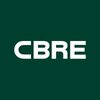

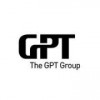
Asked in GPT Group

Q. Types of UPS and it's work.
UPS types include offline, line-interactive, and online, each providing backup power and protection against outages.
Offline UPS: Provides backup power during outages; ideal for personal computers.
Line-Interactive UPS: Regulates voltage fluctuations; suitable for servers and networking equipment.
Online UPS: Offers continuous power supply; best for critical systems like data centers.
Asked in Fogla Group

Q. What is G.O.?
G.O. stands for General Order, a directive used in various industries to ensure standard procedures are followed.
General Orders are often used in military and engineering contexts to outline protocols.
For example, a General Order might specify safety procedures during equipment operation.
In manufacturing, a General Order can dictate quality control measures to maintain product standards.
Share interview questions and help millions of jobseekers 🌟


Asked in Trident Group

Q. Different types of motors
Different types of motors include AC motors, DC motors, stepper motors, and servo motors.
AC motors: commonly used in household appliances and industrial applications
DC motors: used in battery-operated devices and automotive applications
Stepper motors: used in robotics and automation for precise control
Servo motors: used in control systems for accurate positioning

Asked in RC Plasto Tanks And Pipes

Q. Gear box & its types
Gear box is a mechanical device that transmits power from an engine to the wheels. There are various types of gearboxes.
Gearboxes are used in automobiles, industrial machinery, and other applications.
The most common types of gearboxes are manual, automatic, and continuously variable transmissions (CVT).
Manual gearboxes require the driver to manually shift gears using a clutch and gear stick.
Automatic gearboxes shift gears automatically based on the vehicle's speed and other f...read more
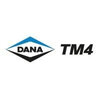
Asked in Dana TM4

Q. What is the working principle of a motor?
A motor works on the principle of electromagnetic induction, where electrical energy is converted into mechanical energy.
Motors have a coil of wire that carries an electric current, creating a magnetic field.
This magnetic field interacts with a magnetic field from a permanent magnet, causing the coil to rotate.
The rotation of the coil is then used to drive mechanical systems, such as fans, pumps, or conveyor belts.
Different types of motors include DC motors, AC motors, and st...read more

Asked in JLL Technologies

Q. How many DG checks are required?
DG checks refer to the assessment of differential pressure gauges in engineering systems.
DG checks are crucial for ensuring the accuracy of pressure readings.
Regular calibration of differential pressure gauges is necessary to maintain performance.
For example, in HVAC systems, DG checks help monitor airflow and system efficiency.
In process industries, DG checks can indicate filter conditions and potential blockages.
Asked in Tirupati Starch Chemicals

Q. Q1 Type of pump and its uses.
Pumps are used to move fluids from one place to another. Different types of pumps are used for different applications.
Centrifugal pumps are commonly used for water supply and HVAC systems.
Positive displacement pumps are used for high viscosity fluids like oil and syrup.
Diaphragm pumps are used for chemical and food processing industries.
Submersible pumps are used for pumping water from wells and underground sources.
Gear pumps are used for hydraulic systems and lubrication.
Axi...read more

Asked in Aarti Steels

Q. What is ACB?
ACB stands for Air Circuit Breaker, a device used to protect electrical circuits from overloads and short circuits.
ACBs are designed to interrupt fault currents and protect electrical equipment.
They can be used in medium to high voltage applications.
ACBs often include features like adjustable trip settings and remote operation.
Example: ACBs are commonly used in industrial plants to safeguard transformers.

Asked in Aarti Steels

Q. What is VCB?
VCB stands for Vacuum Circuit Breaker, a device used to protect electrical circuits by interrupting current flow in a vacuum.
VCBs operate by creating an arc in a vacuum, which extinguishes the arc quickly.
They are commonly used in medium voltage applications, such as substations.
VCBs have a long lifespan and require minimal maintenance compared to other types of circuit breakers.
An example of VCB usage is in industrial plants where reliable circuit protection is crucial.


Q. Maintenance equipment efficiency
Maintenance equipment efficiency focuses on optimizing performance and reducing downtime through effective practices.
Regular maintenance schedules prevent unexpected breakdowns, e.g., weekly checks on HVAC systems.
Utilizing predictive maintenance tools can forecast equipment failures, e.g., vibration analysis in motors.
Training staff on proper equipment use enhances efficiency, e.g., operators trained on CNC machine settings.
Implementing a tracking system for maintenance hist...read more

Asked in ACC

Q. Material handling procedure
Material handling procedure involves the safe and efficient movement of materials within a facility.
Establish clear guidelines for handling different types of materials
Train employees on proper lifting techniques and equipment usage
Implement safety measures such as wearing protective gear and using designated pathways
Regularly inspect equipment and storage areas for potential hazards
Utilize technology like conveyor belts or forklifts for heavy or bulky items
Asked in Bestech Business Tower

Q. What is a DG governor?
DG governor is a device that regulates the speed and output of diesel generators for optimal performance and stability.
Maintains constant speed of the diesel engine under varying load conditions.
Uses feedback from the engine to adjust fuel supply accordingly.
Examples include electronic governors and mechanical governors.
Essential for preventing overspeed and ensuring efficient fuel consumption.
Commonly used in power generation, marine applications, and industrial setups.

Asked in ARCL Organics

Q. Draw a distillation column.
A distillation column is a vertical tower used to separate and purify liquid mixtures based on differences in boiling points.
Distillation columns consist of trays or packing material to increase surface area for vapor-liquid contact.
Heat is applied at the bottom of the column to vaporize the liquid mixture.
The vapor rises through the column, condenses at different heights based on boiling points, and is collected as separate products.
Examples of distillation columns include t...read more

Asked in Surelock Plastics

Q. Overall plant manage
Overall plant management involves overseeing all aspects of plant operations to ensure efficient and effective production.
Monitoring production processes and identifying areas for improvement
Managing plant personnel and ensuring safety protocols are followed
Maintaining equipment and scheduling maintenance as needed
Ensuring compliance with regulatory requirements
Managing inventory and ordering supplies as needed

Asked in JLL

Q. Safety of DG set,transformer
Ensuring the safety of DG set and transformer is crucial for preventing accidents and maintaining equipment efficiency.
Regular maintenance and inspections are essential to identify and address any potential safety hazards.
Proper grounding and insulation of electrical components can prevent electrical shocks and fires.
Implementing safety protocols and procedures for operating and maintaining the equipment is necessary.
Training staff on safety measures and emergency response pr...read more

Asked in JLL Technologies

Q. How many HVAC AHUs are you familiar with?
The number of HVAC AHUs can vary depending on the size and layout of the building.
The number of HVAC AHUs is typically determined by the size of the building and the specific heating and cooling needs of different areas.
Large commercial buildings may have multiple HVAC AHUs to efficiently regulate temperature throughout the space.
Residential buildings may have a single HVAC AHU serving the entire home.
HVAC AHUs can also vary in size and capacity based on the requirements of t...read more

Asked in JHS Svendgaard Laboratories

Q. Do you have an improvement plan?
To create an improvement plan, identify areas for growth, set specific goals, develop strategies, implement changes, and regularly evaluate progress.
Identify areas for improvement based on data analysis or feedback
Set specific, measurable, achievable, relevant, and time-bound goals
Develop strategies and action plans to achieve the goals
Implement changes and monitor progress regularly
Adjust the plan as needed based on feedback and results

Asked in RC Plasto Tanks And Pipes

Q. Types of chiller, refrigerant
There are two types of chillers: air-cooled and water-cooled. Common refrigerants include R-22, R-134a, and R-410A.
Air-cooled chillers use air to remove heat from the refrigerant, while water-cooled chillers use water.
R-22 is a commonly used refrigerant, but it is being phased out due to its harmful effects on the environment.
R-134a is a more environmentally friendly refrigerant, but it is less efficient than R-22.
R-410A is a newer refrigerant that is both efficient and envir...read more

Asked in Pricol Engineering Industries

Q. What are MTTR and MTBF?
MTTR stands for Mean Time To Repair and MTBF stands for Mean Time Between Failures.
MTTR is the average time taken to repair a failed component or system.
MTBF is the average time between failures of a component or system.
MTTR is usually measured in hours or days, while MTBF is also measured in hours or days.
MTTR is an important metric in maintenance and repair operations, while MTBF is used to assess the reliability of a system.
For example, if a machine has an MTBF of 500 hour...read more

Asked in Genpact

Q. What is your current CTC?
My current CTC is $70,000 per year.
My current CTC is $70,000 per year
CTC stands for Cost to Company
It includes salary, bonuses, benefits, and any other perks provided by the company

Asked in Kilburn Chemicals

Q. What is the seel
SEEL stands for Safety, Environment, Equipment, and Leadership.
SEEL is a framework used in engineering to prioritize safety, environmental impact, equipment maintenance, and leadership skills.
It helps ensure that all aspects of a project or operation are considered and managed effectively.
For example, a shift engineer may use the SEEL framework to conduct safety inspections, implement environmental protocols, maintain equipment, and demonstrate leadership to their team.

Asked in ACC

Q. Cement temperature?
Cement temperature is an important factor in the production process, affecting setting time and strength of the final product.
Cement temperature should be monitored closely during production to ensure optimal conditions.
Higher temperatures can accelerate the setting time of cement, while lower temperatures can slow it down.
The ideal temperature range for cement production is typically between 90-120 degrees Celsius.
Temperature control systems are often used in cement plants t...read more
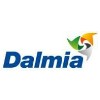
Asked in Dalmia Bharat Group

Q. Process of cement production
Cement production involves a series of steps including crushing, grinding, heating, and mixing raw materials to form clinker.
Crushing: Raw materials like limestone, clay, and iron ore are crushed into small pieces.
Grinding: The crushed materials are then ground into a fine powder.
Heating: The powdered materials are heated in a kiln to a very high temperature.
Mixing: The heated materials are mixed with gypsum to form cement clinker.
Grinding again: The clinker is ground with a ...read more
Asked in A.b. Sugars

Q. Work of distillation plant
Distillation plant is used to separate components of a liquid mixture based on differences in boiling points.
Distillation involves heating the liquid mixture to create vapor, then cooling the vapor to condense it back into liquid form.
The components with lower boiling points will vaporize first and be collected, leaving behind the components with higher boiling points.
Common examples of distillation plants include alcohol distillation for making spirits and crude oil distilla...read more
Interview Questions of Similar Designations
Interview Experiences of Popular Companies




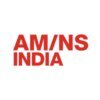



Reviews
Interviews
Salaries
Users

















